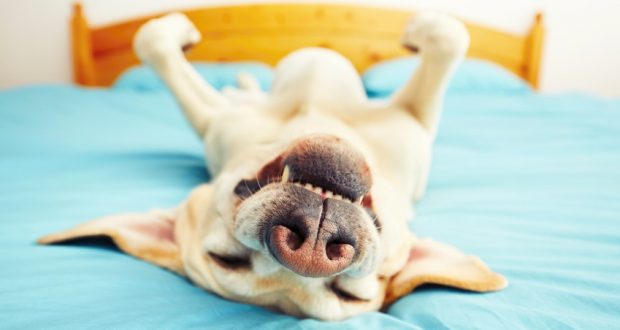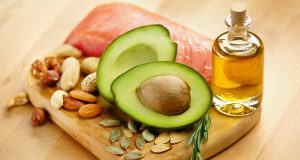The National Sleep Foundation recommends adults get 7-9 hours of sleep every night. So, what happens when we don’t get enough sleep? New research has shown that getting less than 7 hours of sleep per night can put you at higher risk for Type II diabetes, diabetes complications, and other metabolic diseases like obesity.
The body’s reaction to lack of sleep can mimic insulin resistance. Insulin resistance occurs due to the cell’s inability to utilize insulin. This results in high blood sugar. Imagine if your blood sugar was spiking every single night simply because you were having trouble sleeping… yikes!
Have you noticed that your blood sugar tends to be higher in the morning when you wake up? The dawn phenomenon is a normal, natural rise in blood sugar that occurs in the early morning hours, between roughly 4-8 AM when the person is about to wake for the day.
This natural rise occurs in everyone, whether they have diabetes or not. It’s simply a matter of how high the blood sugar goes, and if the body can respond without intervention. People without diabetes likely never even notice because their body has sufficient insulin available to control the glucose.
A person with diabetes is more likely to experience symptoms because there is either not enough insulin available, or the body’s cells are resistant to it. Therefore, someone with diabetes is more likely to experience the effects of morning high blood sugar. These effects can include nausea, weakness, disorientation, and extreme thirst.
Research has also shown that losing sleep can affect your weight. Lack of sleep may be related to increased hunger, appetite, and possibly even obesity. People who experience difficulty sleeping may also be less likely to exercise and engage in physical activity, and therefore may have more difficulty maintaining a healthy weight.
Plus, when you’re tired, you’re hungry! Lack of sleep appears to not only stimulate appetite in general, it also stimulates cravings for high-fat, high-carbohydrate foods. This is because the body is looking for quick energy to give it fuel to keep going.
For diabetics, an increase in appetite, especially for high-carbohydrate foods makes healthy eating, and blood sugar management, more challenging. Eating healthful foods in proper portions throughout the day will keep energy levels and blood sugar more stable.
Speaking of food, studies have linked some foods we eat to the relief of insomnia symptoms. Research suggests that being calcium-deficient may make it difficult to fall asleep. Dairy products like yogurt and milk are good sources of calcium. Be sure to choose full fat dairy products as they contain less sugar.
There are actually several foods that can help you fall asleep without raising your blood sugar. You’ve probably heard that turkey makes you tired. The myth that it’s the Thanksgiving bird that brings on the epic post-gorge nap on the couch with football on the TV in the background.
As it turns out, there’s truth to that! Tryptophan is an amino acid found in turkey that is used by your body to make serotonin and melatonin, the hormones responsible for sleep!
It may sound strange, but chickpeas/garbanzo beans are another fantastic food for encouraging sleep. They contain a ton of vitamin B6. This vitamin raises your body’s level of serotonin. If a handful of chickpeas before bed isn’t your thing, (totally understandable), try dipping a few slices of zucchini or cucumber in this creamy hummus for a satisfying snack.
Yearning for something sweet? A bowl of ice cream before bed is obviously not a midnight snack option for diabetics. However, there is a cool treat you can enjoy, that may actually help you sleep better!
Some fruits lend themselves especially well to sleep. Cherries are naturally high in melatonin, the hormone that regulates sleeping and waking. Bananas are high in potassium and magnesium, which act as natural muscle relaxers.
So how can we combine these two for a sleepy, sweet treat? Blend frozen cherries and half a frozen banana with a splash of milk (full-fat, coconut, or almond.) It’s cool and delicious, not too sweet, and can help you sleep!
Avoid drinking caffeine, alcohol, or large amounts of water before bed. Not only will it complicate the act of falling asleep, but you are not likely to stay asleep very long either. When the effects of the caffeine and alcohol wear off, your brain will wake you. (Your bladder will likely wake you, as well!)
Still having trouble sleeping? One way to help improve your night’s sleep is to form a bedtime routine. Perhaps you enjoy a warm bath each night before bed; add some lavender or chamomile bath oil to relax your muscles and your mind.
If you have multiple errands for the next day, write them down in a to-do list before lying down to sleep. Avoid looking at brightly lit screens (television, laptop, cell phone) one hour before bed as these stimulate your brain and can keep you awake.
Sleep should be easy, but when it isn’t, we must take action. Sleep is so critical not only to blood sugar, but to the entire body. Whether you get it from a bowl of hummus, a warm bath, or by making a to-do list, you’ve got to get quality sleep in order to enjoy quality of life.
Sources:
https://www.webmd.boots.com/sleep-disorders/news/20180110/more-sleep-may-cut-appetite-for-sugary-food?src=RSS_PUBLIC
https://sleepfoundation.org/excessivesleepiness/content/how-much-sleep-do-we-really-need-0
 Diabetic Kitchen
Diabetic Kitchen





Recent Comments